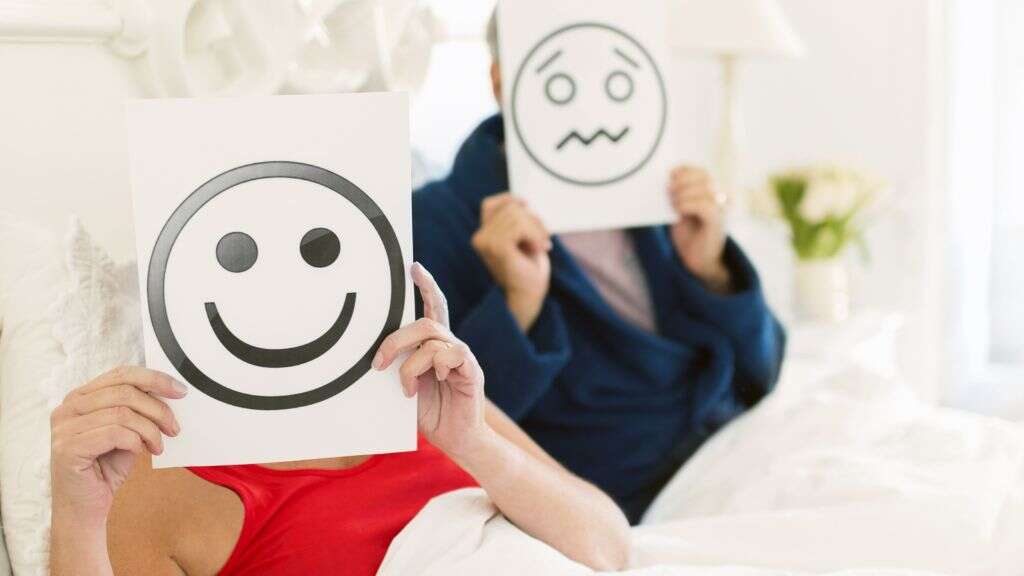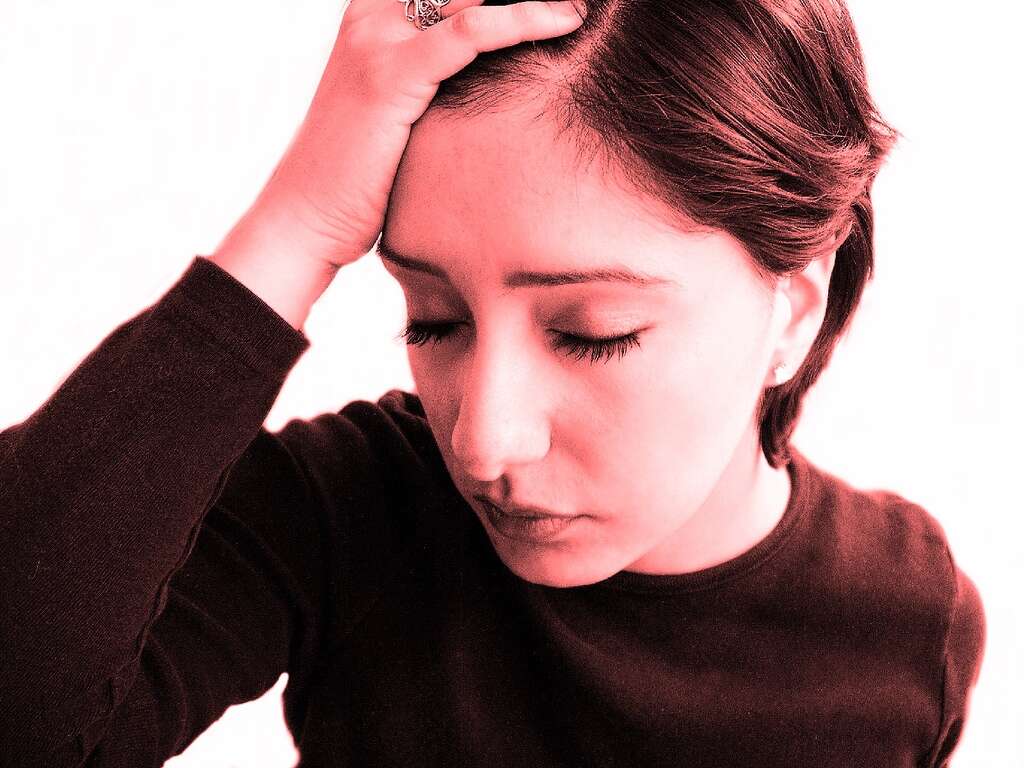Social Anxiety Disorder Symptoms
Many Americans suffer from some form of anxiety. Anxiety is a factor in the majority of mental health diagnoses. It’s such a prevalent problem, in fact, that many people see social anxiety disorder and related symptoms as normal behavior that doesn’t require the help of a doctor.
Social anxiety may be triggered by a specific event or brain chemistry, or it may be a part of a larger generalized anxiety disorder. According to the Anxiety and Depression Association of America, social anxiety disorder affects approximately 6.8% of the U.S., and a third of those who are eventually diagnosed with social anxiety disorder may experience symptoms for 10 years before seeking treatment. Here are some of the symptoms to watch for to see if you need to talk to your doctor about treatment for this problem.

1. Communication Apprehension
People with social anxiety tend to avoid situations where they are likely to be the center of attention. They tend to be quite aware of their fears, but they are concerned that people will judge them if those fears are recognized. Those who suffer from social forms of anxiety may avoid public speaking, as this has the potential to open them up to scrutiny.
Communication fears aren’t limited to the public arena. Social anxiety can also make group or interpersonal interactions difficult as well. If it frequently feels impossible for you to engage with other people in regular social situations, you may benefit from talking to your doctor about anxiety.

2. Situational Avoidance
Unfortunately, interaction with others is at the core of many situations that people encounter as part of their daily lives. Even if you just go to work or school, there are many encounters that may trigger social anxiety. Something that seems routine to other people, such as returning an unwanted item to the store, can consume a whole day for people with social anxiety as they try to figure out a way to avoid the situation.
Trying to form connections with people beyond casual interaction can also be problematic. You may avoid dating or going to gatherings where you may meet new friends because there is too much social uncertainty involved. This can lead to loneliness and feelings of isolation, which in turn heighten the side effects of social anxiety disorder.

3. Negative Outlook
For many people with social anxiety, relief seems like an unattainable goal. When everything you need to do to be successful has a social component, just figuring out how to function in the world can be overwhelming and exhausting. This can make it difficult to maintain a positive attitude about how your life is going or what the future may hold.
The negative hopelessness that often accompanies social anxiety is one of the reasons that so many people avoid seeking help. They can’t envision how the problem ever could be resolved, so they are hesitant to exert the energy it takes to try. If you find yourself overcome by a negative outlook on life, it may be helpful to talk to a professional. Those who are trained to address social anxiety may have suggestions that can help you dig your way out of despair.

4. Hyper-Vigilant Analysis
A big part of what makes social interaction so tiring for people with anxiety is what’s going on inside their own heads. Overthinking is a common symptom of social anxiety. Because people with this disorder are afraid of appearing strange or awkward, they tend to analyze everything another person says or does in conversation with them.
Something as simple as a greeting can take on new meaning for people who are unsure that they are accepted by others. They can easily get stuck in a loop wondering whether others are actually glad to see them or if they’re just being polite. If this sounds like your experience, it may be helpful to have a therapist who can walk you through your analytic thought process to sort out what is actually going on in the situation.

5. Hypersensitivity to Criticism
No one particularly enjoys being told what they’re doing wrong. It logically follows, of course, that people who are constantly worrying about what others think of them are extra sensitive to negative feedback. This sensitivity can make many situations, particularly those such as the workplace where feedback is frequently part of the job, more difficult for those with social anxiety than they are for others.
For this reason, people with social anxiety may avoid jobs in customer service if at all possible. When they must work with the critical public, they may need more breaks to recover from the additional stress this causes them. However, their concern about what their boss may think of such a request can keep them from taking the appropriate self-care measures they need to continue doing a good job and still be well.

6. Underdeveloped Social Skills
Social skills, as with any learned behavior, require practice to improve. If people with social anxiety avoid social situations, they may have a difficult time developing social skills that other people take for granted. Even if they cannot avoid uncomfortable encounters, they may be so overwhelmed by negative feelings that they go into survival mode and shut down the ability to learn something new.
This issue can become a self-perpetuating cycle. You need to engage socially with others in order to learn how to do so. If you are anxious about social situations, you may actively avoid them. This avoidance can perpetuate a lack of knowledge and skill. Knowing that you lack these skills can make you more anxious about future social interactions. A qualified therapist can help you break the cycle so that you develop social skills and the confidence to use them.

7. Negative Self-Esteem
Much of the negative outlook that people with social anxiety experience is directed inward. It is a common misconception that anxious people don’t understand their interpersonal problems. In reality, they are usually acutely aware of their social deficits to the point that they actually exaggerate the extent to which they are perceived as awkward. Every imagined misstep adds to their belief that they’re broken or not able to maintain healthy relationships.
The good news is that this low self-esteem can be a catalyst for getting help. The first step to addressing any problem is the acknowledgment that an issue exists. A negative opinion of yourself, while unpleasant, can be useful if it inspires you to look for ways to overcome it and the people who can help you do so.

8. Difficulty Maintaining Eye Contact
Eye contact is a way to establish connection or intimacy with another person. For people with social anxiety, however, a practice that seems so easy for others can be difficult. When you take into account the social difficulties that sufferers experience, this makes sense. The tendency to analyze every nuance of a social interaction, including nonverbal behavior, can make exhibiting common behaviors difficult.
What further complicates this symptom is that there is a stigma attached to it. Many people read into a lack of eye contact, assuming that it means the person is being insincere or deceitful. If you notice that a friend or co-worker doesn’t look at you when you converse, try to keep an open mind. It may be a sign of some level of social anxiety rather than nefarious intentions. If you experience difficulty with eye contact yourself, getting professional help for your anxiety may be useful in overcoming the issue.

9. Gastrointestinal Issues
Different people carry stress in different ways, and many of these coping mechanisms have physical manifestations. Some people get tense muscles, particularly around the neck and shoulder area. Other people carry their stress in their gut, making it difficult for their gastrointestinal system to function the way it’s supposed to work. This is a common symptom of social anxiety disorder.
For many anxious people, gastrointestinal distress is one of the first signs that something is wrong. They may see themselves as socially awkward but do not know the extent of the problem. Then they get diagnosed with a condition like irritable bowel syndrome, and their doctor starts to suggest ways to deal with the problem, which often includes dealing with psychological issues such as anxiety or stress. This may be the first indication that people have underlying issues with social anxiety.

10. Frequent Panic Attacks
Most people who are diagnosed with any type of anxiety will experience a panic attack at some point. While the specific signs of panic attacks vary from person to person, there are a few common trends. Some people feel like they are having a heart attack and experience similar symptoms such as difficulty breathing, chest pains and rapid heart rate. Others may feel dizzy, nauseated and numb or experience sudden chills or hot flashes. Regardless of the symptoms, a panic attack typically leaves the person suffering it exhausted afterwards.
If you are experiencing frequent panic attacks, it may be helpful to take notice of what seems to trigger it. When panic attacks occur during or in anticipation of an uncomfortable social situation, you may have social anxiety disorder. Seeking treatment from a qualified professional is a good first step to controlling the frequency and severity of such attacks.











